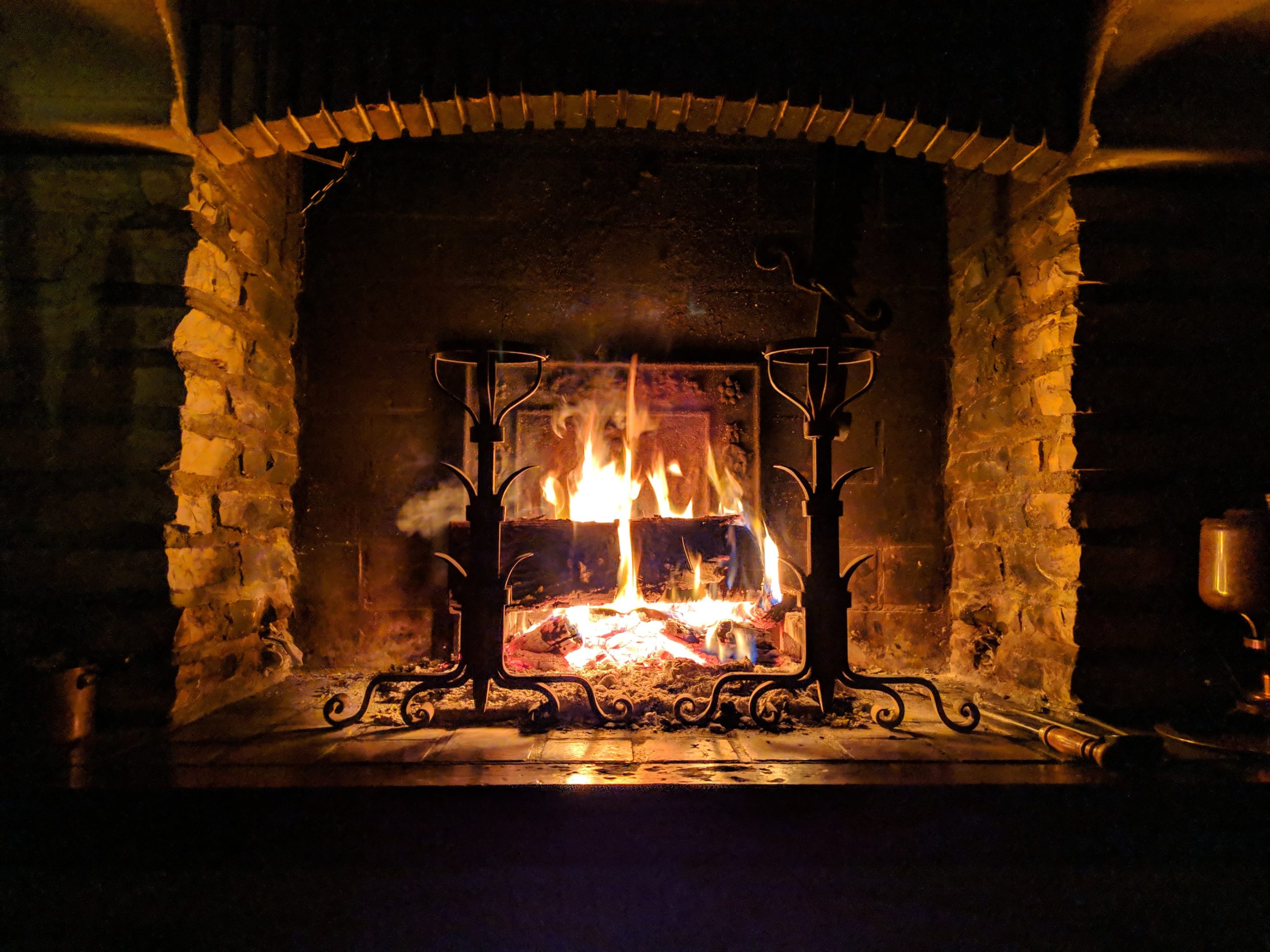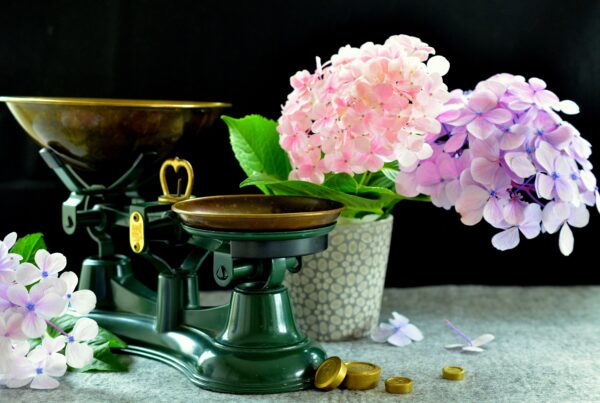To listen to an audio companion to this post, click the player below or you can download an mp3 file here.
For many of us, these weeks have brought a kind of downtime in our work – whether in our beloved side projects or in the jobs that pay the bills.
For some, the downtime has come because of layoffs, or because customers and clients have dried up. For others, a pause in work has been brought about by increased caregiving demands. And for others, the reason for the pause is simply that the stress and grief of this time has made it – for now – too hard to concentrate.
For some of us, these slowdowns bring a financial emergency, and let me say up front, that this post does not address that situation, when urgent and pragmatic action is required.
What I want to speak to here is what we can do when a downtime comes – but we find ourselves struggling internally with giving ourselves permission to slow down or shift our priorities.
As I’ve been talking with women in our community, many have shared with me that they are grappling with what to allow, what to accept, during this downtime. Is it okay not to do much towards their career or creative aims, for a day, or a week, or indefinitely?
As they make a downshift in tempo, many women are being harassed by a voice in their head that says: “You aren’t doing enough. Look over there at what so and so is doing.”
And then it goes on to threaten, “Stay in this downtime too long and you might never go back to hard work, to accomplishing anything, to being on track.”
The cultural conditioning here is fascinating. We’ve been taught to fear that slowing down for a while might somehow mean slowing down forever. And we’ve been taught that slowing down forever would mean never again producing anything of value.
Is that true?
If we rest, listen to our bodies, steep in replenishment and simple pleasures, will we ever contribute anything of value again? Will we create and work hard again?
Yes. Absolutely.
If we rest, listen to our bodies, steep in replenishment and simple pleasures, will we ever go back to working out of martyrdom, self-betrayal, and over-busyness again?
Maybe not.
Tasting something different, we might not ever be willing to work in our old ways again.
That little voice in our heads warning “rest and you might never get back on track” isn’t just irrational; it is afraid of a real change that might come if we restore, slow down, replenish. We might discover some other way to work, to be – one that gives far less power over to the inner taskmaster.
Giving less power to the inner taskmaster is no small thing – that taskmaster runs as deep as patriarchy itself, and as deep as the most foundational messages we’ve received about our bodies, our hungers, our selves.
Perhaps the extent to which our culture aims to keep women from resting is an indicator of how potent our rest would be, how core and tied to our empowerment.
Listening to women talk about their work pauses this past week, I noticed something. Each one started talking about downtime, but their words naturally meandered into the adjacent spheres of the body, and of pleasure. These are closely connected it seems – how we are with not working, not striving, how we are with our bodies, and how we are with our pleasures.
Rest is of the body, after all. We listen to our bodies to feel the desire for rest. And we must experience the sensory in some way – the sound of silence, the softness of a pillow, the calming touch of a breeze – to rest.
The status quo of our culture is threatened whenever women listen to their bodies. From that listening, after all, women start to feel their anger and set new boundaries, say new no’s. Listening to their bodies, women feel more of their joy and start to build lives more around joy than around consumerism and striving. If you want to uphold the status quo in any patriarchal culture, rule #1: Do not get your women listening to their bodies.
And pleasure? Even more dangerous than rest.
Talking about their downtimes, each woman started, without even realizing it, to talk about pleasure. They spoke of the replenishments of a great book, or a slow meal, or a long conversation with a good friend. Some spoke of longing for these, others spoke of how they’ve been soaking up those experiences, but feel guilty – or afraid – about continuing to do so, as if their appetites for even the simplest pleasures could open a kind of Pandora’s Box.
In our conversations, when women share with me those thoughts of “Can I really slow down? What about my work, my goals, my desired contribution?” I have asked them to consult with their inner mentors, their voice of calm and clarity within.
Here’s what one of these moving conversations sounded like. This woman has asked to remain anonymous – let’s call her Ilana here. With the pandemic, she’s been experiencing a downtime in her work – with certain goals having to be put on hold because of market conditions, and a new family reality with kids unexpectedly at home. Here’s the conversation she had with her inner mentor.
Ilana: I’m less productive now, which I think it’s not strange given the situation, but I’m going back and forth between enjoying more time for myself, or enjoying doing less. But also feeling like – what if this means that you’re not really going for your company and not really building your company in a way that’s sustainable? And what if this slips into you just freewheeling… I spent lots of time in academia and in gender research. So that there’s also a lot of voices in me about what I actually should not be doing as a woman – the opposite of what society mostly tells women. What if I’m taking the easy life while other people work really, really hard?
Tara: And where does that voice feel like it’s located? Where are those sentiments in your body or your mind?
Ilana: My heart is pounding fast, so my heart.
Tara: Let’s check in with your inner mentor. What does she have to say about those concerns?
Ilana: She says, “Just let go.” But what comes up immediately is – of what? Let go of doing this work, building my company? Or is it, let go for now of this fear? I don’t know.
Tara: You can check with her.
Ilana: She says, “Let go of pushing yourself. It’s all right.” And then my mind comes again and says, “Well, if you start to enjoy this so much, how will you get into being really productive and building your company?”
Tara: Yes. And what does she say about that?
Ilana: Something that scares me actually. She says, “Well, if that’s what’s happening, then that is what is meant for you.” That’s really scary if she says that. I’m sort of arguing with her. I want to contribute, and not only here at home for my kids.
Tara: And can you tell her that? What did she say?
Ilana: “You can contribute the most if you follow what you feel right now.” And she says, “There are so many ways to get back on track and you will just pick one.”
That feels like a relief. “You’re not off track, you’re on track,” she says. What also comes up now is, “Joy is not only allowed after hard work. Joy is also allowed… Joy is allowed, period.”
As women dive into their deeper knowing, asking not their minds but rather the hum of wisdom in the seat of their bellies, that wisdom always answers back something like this:
Rest. Rest in the softest chair. Rest again, listening to the rain. Take it slow – slow meals, slow glances out the window, slow growth of your branches into your oak tree self.
And contribution? Your contribution? Yes, all of this will enrich your contribution. It’s what will make you the most textured you, the more fully-you you, the one who has something steady and genuine to offer up to others.
Our rest and our pleasure weave into the fabric of what we create. There is no separation between how we replenish and what we then extend outward.
Most of us were raised on the myth that striving is required, day after day, to make a real contribution to the world, to accomplish anything. The thinking goes like this: Want to do something significant? Start by in some way changing yourself, or adding to who you are. Don’t just create now, and certainly don’t just be who you are now or say what you think now.
Put another way, most of us were taught that good work always comes out of hard work. This idea is so foundational for many of us that we hardly notice it.
I’m not against hard work of course, but hard work is not always for the good. I see so many brilliant women believing they must work tirelessly to prepare, polish, augment themselves and their creations, when in reality they are ready now, just as they are, to do what they long to do. To lead. To speak. To have tremendous impact.
They have forgotten entirely (and I still forget all the time too) about the incredible work we create – not out of toil – but out of improvisation, play, and self-trust.
There is an alternative story about what creates a contribution, one I see all the time in the real unfolding of brilliant and impactful careers: that our natural gifts and talents – that unique set of strengths encoded in each of us – is at the core of our contributions. That what we create out of a spirit of play, more than out of striving, creates value. That our heartfelt, lived experiences can be translated into art or innovations or services that have tremendous impact.
Yes, our education and training and hard work are garnishes to all of this, vessels for it, and sometimes necessary ones, but they are not the main course. They are not at the core of what truly creates value for others. What is at the core is the gifts we were born with, the way we do our work, or what I sometimes call “the work underneath the work” – what we are really doing, beneath the formal titles and roles.
This alternative story is very scary to consider because if it’s true, that means a lot of our toil was unnecessary. And even more frightening, it means that it is time to trust ourselves and take vulnerable leaps forward with our work now.
We can find a whole new way of being a creative, contributing woman in the world – one who contributes not in spite of her rest, downtimes, and body rhythms, but because of them.
If the culture had imparted to us that our rest and pleasure were the allies to our impact and achievement, it would have raised legions of women who drank up pleasure and breathed in enoughness and who didn’t ever attempt to cut up or cut off any part of themselves.
But our culture was not ready for women like that. So instead, it guided us to our treadmills. Ready, start, run.
Are you still on a treadmill?
Maybe now more than ever, it matters that we step away from our treadmills.
Many of us find ourselves in a downtime we didn’t design or desire. But we can still choose whether to fill it with false busyness, to be run by an inner taskmaster who fears slowing down – or instead to lean into what calls us now: what kind of restoration, what sustenances, what seeds of curiosity?
Everything is asking now for our deeper consideration, our fewer true words.
And so, if this springtime is really longing to be a winter for you, a time of quiet and finding a hearth right close by, so be it, I say. Let winter shelter you.
Drink everything you are thirsty for, and your cup will soon fill again.
Love,
Tara
P.S. Share this post with a friend experiencing a downtime or pause.
Photo by: Stéphane Juban







